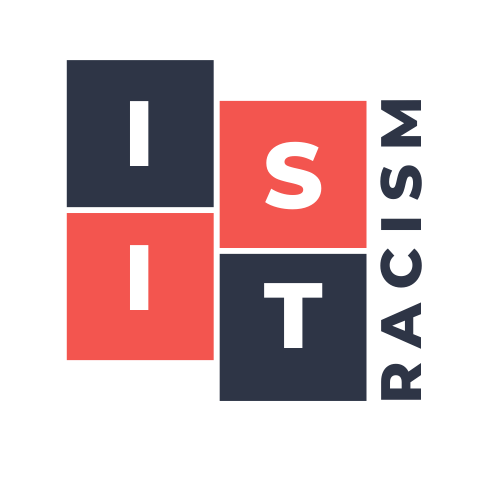Racism refers to any theory, doctrine, ideology, or sets of ideas which assert the superiority of one race or group of persons of one color or ethnic origin, and is used to justify or promote racial hatred and discrimination in any form. Beyond the dictionary definition, racism is about much more than just race-based prejudice and exists in a variety of practices, beliefs, social relations, and phenomena that work to reproduce a racial hierarchy and social structure that yield superiority, power, and privilege for some, and discrimination and oppression for others.
Discrimination is any distinction, exclusion, restriction or preference of a person or a group or persons based on but not limited to the race, color, national or ethnic origin, descent, religion, disability, sexual orientation, gender identity, age group to which the person or group is perceived to belong.
Hate crime is any crime in which the victim is targeted on the grounds of race, color, national or ethnic origin, descent, religion, disability, sexual orientation, gender identity and is punishable by law as defined by Article 82A of the Greek Penal Code ( L.4619 / 2019).
Hate speech is defined as any intentional public speech which incites, provokes, or stirs, either orally or through the press, the Internet, or any other means, acts of violence or hatred against a person or group of persons on the grounds of race, color, national or ethnic origin, descent, religion, disability, sexual orientation, gender identity in a manner that endangers the public order and exposes the life, physical integrity, and freedom of persons defined above to danger.
Bystander is a person who is present at an event or incident but does not take part. An active bystander therefore is someone who not only witnesses a situation, but intervenes, often taking steps to speak up or step in to de-escalate or disrupt a problematic situation.
Definitions of every day racism
› Institutional or systemic racism
Institutional racism is when racial discrimination is carried out and normalized by the social and political institutions that make up society. It is when oppressive or otherwise negative conditions detected in processes, attitudes and behaviour, are imposed on identifiable groups of people based on their race or ethnicity. This may involve but is not limited to unwitting prejudice, ignorance, thoughtlessness and racist stereotyping which lead to exclusion.
› Microaggression or casual racism
Microaggression or casual racism is a term used for the subtle and often unconsciously or unintentionally expressed prejudiced behaviour and/or attitude toward someone on the basis of them belonging to a particular societal group (such as a racial minority). This can be a statement or action, that communicates a person’s hostile, derogatory, or negative disposition towards another person due to their identity markers.
› Active Bystander
A bystander is a person who is present at an event or incident but does not take part. An active bystander therefore is someone who not only witnesses a situation, but intervenes, often taking steps to speak up or step in to de-escalate or disrupt a problematic situation.
› Racial/ethnic profiling
Racial profiling is the practice of suspecting or targeting a person in a discriminatory way based on preconceived assumptions on the behaviour and characteristics of their racial or ethnic group rather than an objective individual suspicion.
Read more
Racial profiling, however, is not limited only to an individual’s race or ethnicity, but can also be based on the individual’s skin color, religion, or national origin. This type of profiling is particularly prevalent in law enforcement with decision making about persons believed to be involved in criminal activity or evident in law enforcement policies and practices that have a disproportionate impact on specific groups without any legitimate law enforcement purpose. Quite simply, racial/ethnic profiling targets certain persons because of what they look like and not what they have done.
› Instersectionality
Intersectionality is a theoretical framework introduced by Kimberlé Crenshaw for understanding how people can be simultaneously discriminated against and socially disadvantaged based on multiple social and political identities (race, gender, class, sexual orientation, religion etc.).
Read more
Intersectionality is a way of understanding and analyzing the complexity in the world, in people, and in human experiences, which are generally shaped by many factors/ social classifiers and not by a single axis of social division.


